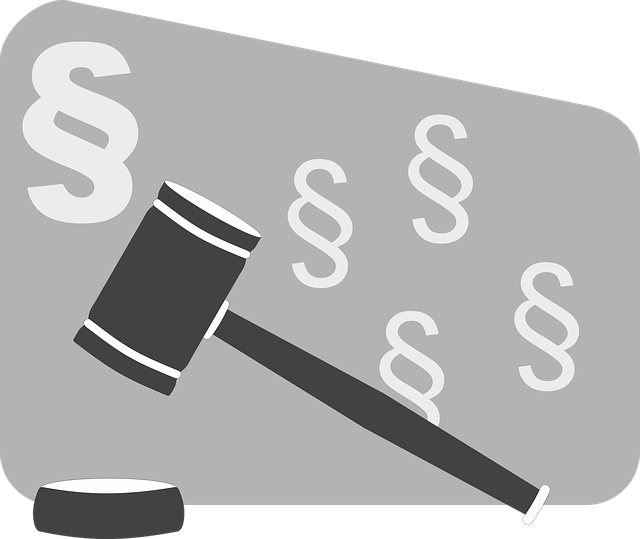Navigating healthcare compliance legal issues requires balancing whistleblower protection for exposing illegal activities in healthcare organizations, while mitigating risks like patient care missteps, billing practices, and regulatory non-compliance. Specialized white collar defense attorneys help entities understand these complexities' impacts on reputation and financial stability, offering proactive strategies to prevent whistleblower lawsuits through robust internal reporting, compliance training, and anti-harassment policies. In case of lawsuits, engaging healthcare legal experts is vital for strategic defenses focusing on adherence to standards and regulatory requirements, aiming for charge dismissal while maintaining meticulous record-keeping and communication to protect the organization's reputation.
“Navigating Healthcare Compliance Legal Issues: Unraveling Whistleblower Protection Lawsuits is an in-depth exploration of a critical aspect of healthcare governance. This article delves into the complex world of whistleblower lawsuits, offering insights for professionals to understand and mitigate potential risks. From identifying common compliance pitfalls that often lead to legal actions to presenting effective strategies for prevention and response, this guide is essential for those seeking to safeguard their organizations in an increasingly regulated healthcare landscape.”
- Understanding Whistleblower Protection Lawsuits in Healthcare
- Common Compliance Issues Leading to Legal Actions
- Strategies for Preventing and Responding to Such Lawsuits
Understanding Whistleblower Protection Lawsuits in Healthcare

Navigating Healthcare Compliance Legal Issues is a complex task, especially when it comes to whistleblower protection lawsuits. These cases arise when individuals within healthcare organizations—such as doctors, nurses, or administrators—reveal illegal activities or practices within their institutions. Protecting whistleblowers is paramount for maintaining public trust and ensuring ethical conduct in the healthcare sector.
Whistleblower Protection Lawsuits play a critical role in holding accountable those who engage in fraud, corruption, or misconduct. Across the country, legal experts specialize in defending whistleblowers throughout all stages of the investigative and enforcement process, aiming to achieve extraordinary results. By exposing wrongdoings, these lawsuits not only protect individuals but also foster transparency and accountability within healthcare institutions.
Common Compliance Issues Leading to Legal Actions

In the complex landscape of healthcare compliance, organizations often face numerous legal challenges that can lead to high-stakes cases and whistleblower protection lawsuits. Common issues include missteps in reporting and documenting patient care, billing practices, and regulatory non-compliance. These problems are exacerbated by a lack of comprehensive training and proactive risk management strategies, causing entities to stumble through the intricate rules and regulations governing their operations.
Navigating healthcare compliance legal issues demands meticulous attention to detail at every stage of the investigative and enforcement process. White collar defense attorneys play a crucial role in guiding organizations through these challenges, ensuring they understand not just the immediate consequences but also the potential long-term impact on their reputation and financial stability. By identifying and addressing compliance gaps early, entities can minimize the risk of whistleblowing lawsuits and maintain integrity within their operations.
Strategies for Preventing and Responding to Such Lawsuits

Navigating Healthcare Compliance Legal Issues requires a proactive approach to prevent whistleblower protection lawsuits. Organizations should establish robust internal reporting mechanisms, ensuring employees feel safe to voice concerns without fear of retaliation. Regular training sessions on compliance and ethical practices can educate staff about their rights and responsibilities, fostering an environment of transparency. Additionally, implementing strict policies against whistlebler harassment is essential; these policies must be clearly communicated throughout the organization.
When responding to such lawsuits, a comprehensive strategy is vital. Engaging experienced legal counsel who specialize in healthcare law can provide valuable guidance during all stages of the investigative and enforcement process. A general criminal defense approach may not suffice for these complex cases; instead, focus on presenting a strong defense that demonstrates adherence to legal standards and regulatory requirements. Aiming for a complete dismissal of all charges is a viable goal, but it requires meticulous record-keeping and strategic communication to protect the organization’s reputation and ensure compliance with whistleblower protection laws.
Navigating healthcare compliance legal issues is essential for institutions to protect their reputation and avoid costly whistleblower protection lawsuits. By understanding common compliance pitfalls, such as inadequate internal reporting mechanisms and failure to protect confidential information, organizations can implement robust strategies to foster a culture of ethical conduct. Proactive measures, including comprehensive training programs and clear policy frameworks, are key to preventing legal actions. Additionally, swift and transparent responses to potential whistleblower claims can mitigate damage and demonstrate commitment to integrity within the healthcare sector.






